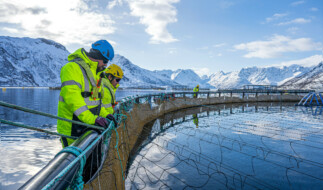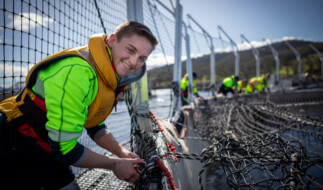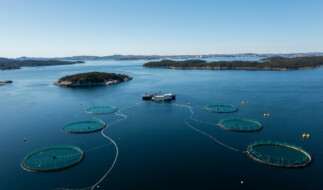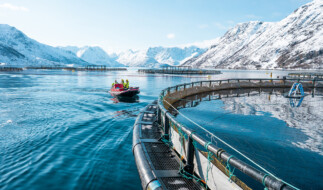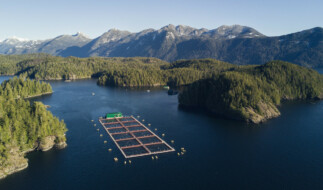Barriers to Innovation in Fish Farming
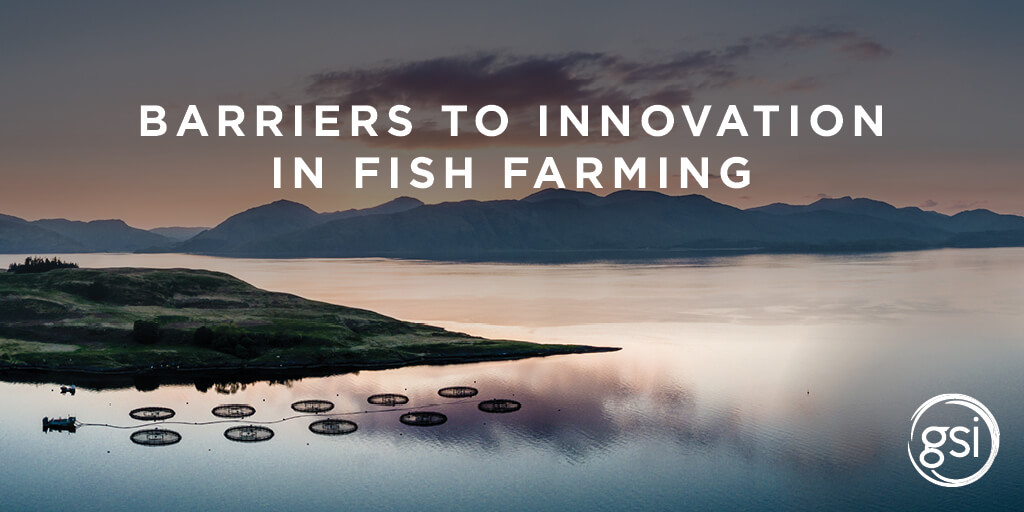
In aquaculture and fish farming we are committed to farming only the healthiest of fish in the most sustainable way. This requires continuous change to ensure we stay at the forefront of responsible farming and are continually reducing our environmental footprint. Innovation is therefore critical; but innovation is not always easy. There are many barriers to innovation – from a lack of knowledge, or lack of finance, and sometimes even the lack of resource to trial and implement new innovations. Which is where the Global Salmon Initiative (GSI) steps in. We work to break down these barriers and support our members in identifying and implementing innovations now, which will help shape a more sustainable future for the fish farming industry.
In this blog, we break down some of the most common barriers to innovation and share how the GSI is using its collective strength to overcome them.
Knowledge
Kicking off with knowledge. Sometimes we simply can’t innovate or overcome challenges because we lack the knowledge. But we all know two heads are better than one, right? And many hands make light work? By pooling and sharing knowledge we have a much better chance of finding a solution. So that’s exactly what we do. We share, we solve, and we innovate. We call it our solution-focused knowledge-sharing platform! Simply put, we know that by combining our global expertise in salmon farming, we can better identify challenges, foster development, and drive the environmental improvements that our industry needs to enhance its sustainability profile.
We’ve used this approach to help us in our drive towards achieving 100% ASC-certification, and in our biosecurity taskforce to improve on-farm practices for fish health and welfare. You can find out more about GSI’s specific projects by downloading our salmon farming case studies here.
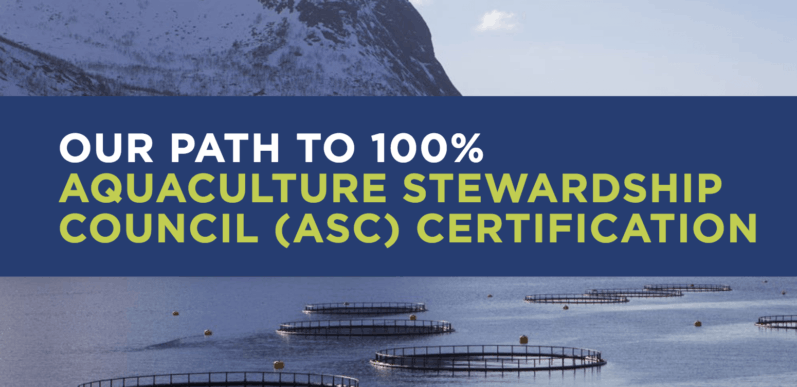
The second barrier to innovation is money – finding the money to make innovation happen! But establishing long-lasting change doesn’t have to cost the Earth and it shouldn’t prevent us from moving forward.
Finance
We have been working on several different approaches to tackle the financial barrier to innovation in fish farming:
- In many of our aquaculture sustainability improvement projects, working together as a collaborative network means we can share the cost. So if we’re doing a research project and trialing new equipment, one farm tests the equipment and then shares the results. This saves time and money by eliminating unnecessary replication of work.
- Demonstrating a commitment to environmental improvements can help open up new partnership opportunities supporting progress. Many of the GSI members work with the World Wildlife Fund (WWF) on local and regional improvement programs, supporting our members work towards achieving ASC certification.
- And finally, we’re excited to see money flowing in the right direction! Investors are now looking at green bonds as a way to ensure their money is going towards projects that don’t cost the Earth. A GSI Member, Grieg Seafoods, has launched a ‘Green Bond Framework’, which will help fund environmental projects such as supporting more farm certifications and implementing new climate mitigation strategies. You can read more about how Green Bond works here.
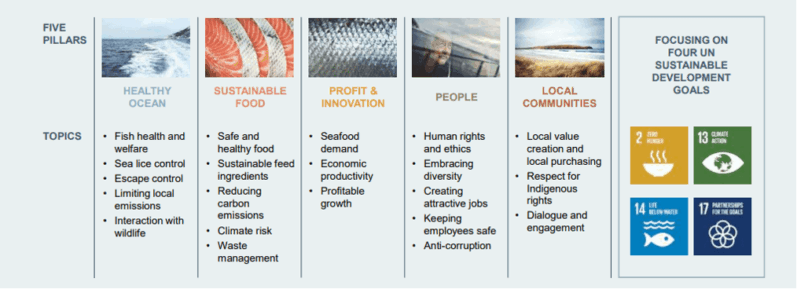
Key areas for investment and innovation for a sustainable business – Grieg Seafood ASA
Implementation
The final barrier to innovation is implementation; you have a great idea, you’ve got the funding, but now what do you do? That’s where collaboration comes in: for too long, we’ve seen sustainability as a competitive topic. But while corporate competition remains important, we believe that if we want to support a greener world and drive sustainable progress, then we need to work together.
One way to foster implementation is by bringing the industry together – fish farmers and the wider supply chain. That way, when we have an idea we also have the means to research and implement it – and importantly, at the speed and scale required.
“Pre-competitive platforms...offer a diversified strategy and a faster path to innovation and progress”WWF
Our approach to driving innovation through implementation has been captured by WWF here.
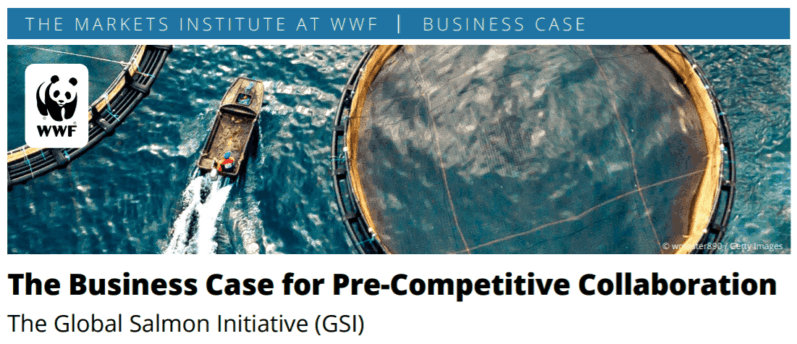
Adaption
Being innovative in 2020 meant we urgently needed to adapt to ensure resilience and continue to live and work during the COVID-19 pandemic.
With COVID-19 impacting every part of life, our farmers have also had to adapt their processes to keep staff safe and ensure that the highest quality salmon continues to reach every part of the world.
We’d like to share a behind-the-scenes video from GSI member Blumar, so you can see for yourselves some of the great innovations and adaptations that have been put in place in the processing plant to make this happen.
From rethinking the production line to providing in-depth health and safety training, all our members are dedicated to continuing farming and processing salmon so we can all enjoy eating it at home and in restaurants with social distancing.
This year, community spirit has been more important than ever. We’ve seen some remarkable examples of communities pulling together to support each other during these unprecedented times:
- GSI member Aqua Chile converted its laboratory into a coronavirus processing and testing facility, providing over 2,000 tests a week, showing how public and private sectors can work together in the fight against COVID-19
- During lockdown, New Zealand King Salmon supplied over 18,000 unemployed hospitality staff and front-line workers across Australia and the United States with take-home salmon parcels from Ora king salmon
- Salmon farmers in British Columbia donated more than 27 tonnes of fish to hard-pressed food banks in the province to help feed families during the pandemic
2020 has shown us that we can achieve a lot when we work together, and by using GSI as a knowledge-sharing platform, we are continuously focused on finding ‘better ways’ to tackle global sustainability challenges. Promoting innovation can help us become more efficient and reduce our environmental impact. With the ultimate goal of supporting a more sustainable future for the salmon farming industry and future of global food systems.
